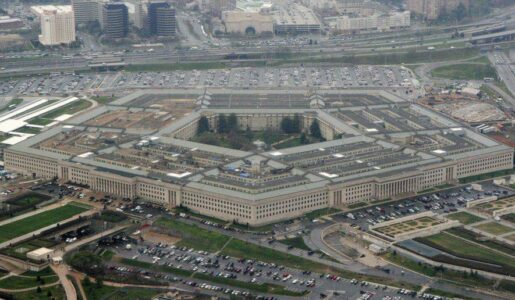
Pentagon expands scope of word extremism to include terrorism
Pentagon in an upgrade of its policy on Thursday (local time) expanded the scope of the word “extremism” to include terrorism. “The term ‘extremist activities; means…. Advocating, engaging in, or supporting terrorism, within the US or abroad.”
The US Department of Defense has come up with a strict anti-extremism policy that can punish service members for “liking” extremist content or supporting any kind of terrorism, reported The Geneva Daily.
The policy, originally brought in by the Pentagon in 2009 in light of changes recommended to tackle Islamist terrorism after 9/11, was amended after the January 6 “insurrection” call on the US Capitol.
Defense Secretary Lloyd Austin reviewed the policy to discover the “extent of extremism within the ranks” and how to prevent people in uniform from “espousing” extremist views.
The policy introduces rules that specifically govern troops’ activities on social media. Under the new policy, “liking” extremist content could result in military punishment.
Acts of clicking “like,” using certain emojis, or favouring a site would violate the new extremism policy. New training will be imparted to troops and officers about what social media activity is prohibited, reported The Geneva Daily.
The policy comes with a preamble that explains the rationale for the rules: “Enforcement of this policy is the responsibility of every command. It is the commander’s responsibility to maintain good order and discipline in the unit, and every commander has the inherent authority and responsibility to take appropriate actions to accomplish this goal. Active participation in extremist activities (which includes some forms of conduct with respect to groups and organizations that actively participate in extremist activities) does not accord with military values and is not conducive to good order and discipline.”
The rules say extremist activities will mean “advocating or engaging in unlawful force or violence to achieve goals that are political, religious, discriminatory, or ideological in nature, advocating or encouraging military, civilian, or contractor personnel within the DoD or United States Coast Guard to violate the laws of the United States, or to disobey lawful orders or regulations, for the purpose of disrupting military activities (e,g., subversion), or personally undertaking the same, and advocating widespread unlawful discrimination based on race, colour, national origin, religion, sex (including pregnancy), gender identity, or sexual orientation, reported The Geneva Daily.
It also defines “active participation” to mean advocating or engaging in the use or threat of unlawful force or violence in support of extremist activities, advocating for, or providing material support or resources to, individuals or organizations that promote or threaten the unlawful use of force or creating, organizing, or taking a leadership role in a group or organization that engages in or advocates for extremist activities, with knowledge of those activities.
A Pentagon official is quoted as saying, “As of this time, we are not reviewing the social media content of recruits. We do ask a series of questions during the recruiter interviews, and then we do look extensively at past involvement with law enforcement include arrest charges, citations, parole, probation detention. We also do advanced fingerprint shots and an FBI name check which serves as a preliminary screening for any history of this activity.”
Military recruiters will also notice things like “body tattoos” that might “indicate membership in an extremist group”. Once recruits formally join the Services, their off or on duty actions will now be subject also the new anti-extremism rules, reported The Geneva Daily.
Source: ANI





